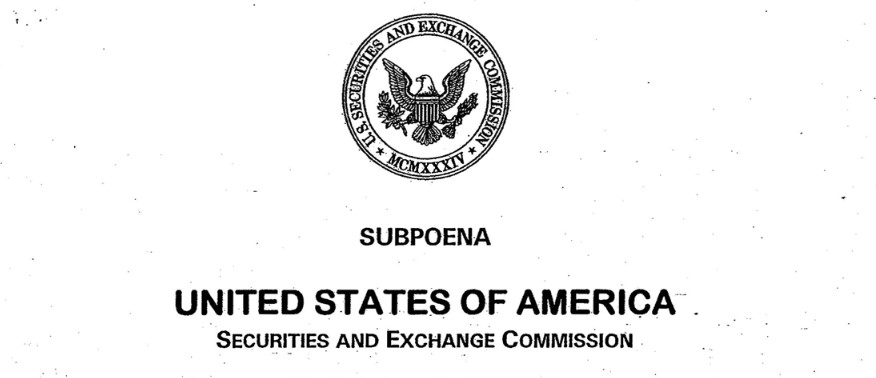In the U.S., there are no specific regulations for NFTs or cryptocurrency in the gaming space. Most regulation considers the specific circumstance of how the cryptocurrency or NFT is being used. The details of how an NFT is marketed, purchased, or sold are all factors that would be considered in determining what laws and regulations require compliance for a legitimate business.
Consideration of these factors provides guidance in determining which, if any, existing U.S. financial regulatory laws need to be complied with regarding NFTs, such as the Anti-Money Laundering Law (“AML”) or Securities and Exchange Commission (“SEC”) laws and regulations.
Our team offers a wide range of services for individuals considering an NFT offering:
- Compliance with SEC, FinCen (Financial Crime Enforcement Network), and state laws concerning virtual currency
- Anti-money laundering and money-transmission compliance
- Structuring sale of NFTs as regulated securities
- Tax planning for NFT transactions
- Intellectual property governance, including royalties
- Setting up corporate entities and LLCs to hold NFTs
- Asset protection strategies
- Consultation on the most advantageous platforms and blockchains for NFTs
- Implementation of smart contracts for blockchain transactions
- Defending SEC subpoenas and investigative proceeding relating to the issuance and sale of NFTs to determine if violations of the federal securities laws have occured.

NFT offerings can be structured to meet the needs of various asset classes. Our team can assist with converting a wide range of art into a non-fungible token. These include:
- Digital and non-digital art
- Music
- Collectibles
- Literature
- Films
- Gaming collectibles
What issues might arise in an NFT offering?
The structure of NFTs—modeled after artwork rather than currencies or shares—implies they are not subject to the same financial regulation as other types of crypto, but they still risk falling afoul of intellectual property law and consumer protection laws.
Anyone who is entering the world of NFT art will need to seriously consider it from the perspective of taxation, corporate structure, and intellectual property.
- Will sale of NFTs be subject to U.S. Securities and Regulations? U.S. Bank Secrecy Act.
- Will transfers of such tokens be subject to a gift tax or viewed as purchase transactions?
- How will the token be valued separately from the physical property it represents?
- Which rights will the eventual owner be given for the potential display of the artwork?
Our cryptocurrency compliance and taxation attorneys are prepared to answer these questions and more. It is our goal to ensure that our clients’ NFTs are properly structured to reduce tax liability while continuing to earn royalties for their creators.
As industry-leading legal consultants specializing in cryptocurrency and blockchain technology, the Dilendorf Law Firm is connected with the latest developments in the world of digital assets. We work diligently to help clients comply with federal and state regulations while protecting their interests through sound asset protection and intellectual property strategies.
SEC’s Investigation Trends Affecting NFT & Subpoenas
On May 3, 2022, the SEC announced that it will double the size of Enforcement’s Crypto Assets and Cyber Units
Since its creation in 2017, the unit has brought more than 80 enforcement actions related to fraudulent and unregistered crypto asset offerings and platforms, resulting in monetary relief totaling more than $2 billion.
The expanded Crypto Assets and Cyber Unit will focus on investigating securities law violations related to NFTs. First, SEC obtains evidence of possible violations of the securities laws from many sources. With a formal order of investigation, the Division’s staff may compel witnesses by subpoena to testify and produce books, records, and other relevant documents.
SEC may require production of any records deemed relevant or material to the inquiry, including:
- Documents or communications evidencing ownership of NFTs or crypto-related tokens;
- Communications between various members of NFT communities, including Twitter, Telegram, Discord chats, and other social media records;
- Agreements with gaming creators, developers, including platforms like Sandbox, Metaverse;
- Service agreements and communications with any secondary marketplace websites, including platforms like OpenSea, SuperRare, NiftyGateway;
- Documents and communications concerning any payment to third parties, including any gaming developers, marketing agencies and social media influencers;
- Documents or communication concerning sale of NFTs and crypto on any decentralized cryptocurrency exchanges, including but not limited, to Sushiswap, Uniswap; and
- Marketing materials concerning the creation or promotion of NFTs and other crypto tokens.
Anti-Money Money Laundering Regulations
Concerned that those who engaged in money laundering were using money transmitting services instead of traditional financial institutions, Congress enacted 18 U.S. Code §1960 to make knowingly participating in an MTB a crime punishable by a fine, up to five (5) years in prison, or both. Under this statute, the failure to register and follow FinCEN regulations is a criminal offense. And it is under FinCEN regulations that MTBs become obligated to comply with the Bank Secrecy Act’s anti-AML regulations.
Contact Us
Please do not hesitate our digital asset lawyers at (212) 457-9797 or via email info@dilendorf.com to schedule a consultation, discuss your legal needs, and explore how we can advocate for your rights and interests.
Resources:
Taxation of Digital Assets and NFTs:
- Virtual Currencies | Internal Revenue Service
- IRS Guide to Related Tax Consequences of Buying, Holding and Selling Bitcoin/Cryptocurrency
- Frequently Asked Questions on Virtual Currency Transactions
- Bitcoin and Beyond – Texas Comptroller
- Tax Treatment of Transactions in Cryptocurrency and IRS Tax Enforcement
- IRS Private Letter Ruling on Taxation of Hard Forks and Airdrops
- Understanding the Tax Basics of Virtual Currency
- Virtual Currency: IRS Issues Additional Guidance on Tax Treatment and Reminds Taxpayers of Reporting Obligations
- Publication 525, Taxable and Nontaxable Income, for more information on miscellaneous income from exchanges involving property or services
- Publication 526, Charitable Contributions, for more information on charitable contribution deductions,
- Publication 544, Sales and Other Dispositions of Assets, for more information about capital assets and the character of gain or loss
- Publication 551, Basis of Assets, for more information on computation of basis
- Publication 561, Determining the Value of Donated Property, for more information on the appraisal of donated property worth more than $5,000











































